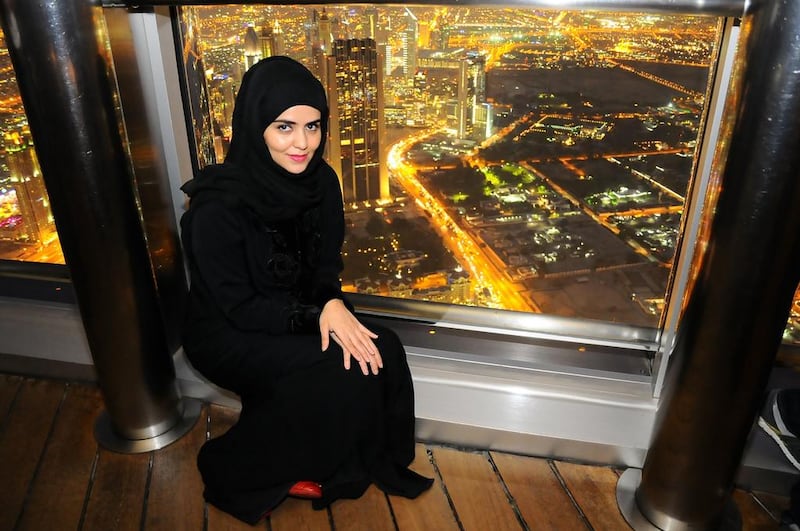ABU DHABI // The gender gap in the UAE has narrowed in the past year, a worldwide study shows.
The Global Gender Gap 2014 compiled by the World Economic Forum gave the UAE a score of 0.64 – where 0 is total inequality and 1 is total equality – compared with 0.63 last year.
The report found the UAE ranked high in education and literacy levels for women, and with their average wages.
Dhuha Fadhel, an Emirati who works at the Dubai Economic Council, believes the country is making progress.
“A few decades back, a traditional patriarchal society was a bit sceptical about certain ideas related to educating and empowering women,” Ms Fadhel said.
“However, luckily enough, the transformation to modernity and open economy that started since the first day of the establishment of the union in 1971 has granted more liberty and equal opportunity to Emirati women.”
The report scored 142 countries based on factors including educational attainment, political empowerment, health and survival, and economic participation.
Emirati filmmaker Nayla Al Khaja believes the UAE is the leader in the Arabian Gulf for women’s social, political and economic empowerment.
“The UAE is the most progressive society in the Arab region,” Ms Al Khaja said. “Things are changing at a very fast pace here. The opportunities I have today, my mother’s generation didn’t enjoy them.
“With the growing exposure and opportunities, UAE women are getting a better and better position in Emirati society.”
The report says the UAE had improved its overall performance, but fell slightly on its global ranking, from 109th of 142 nations last year to 115th. For Gulf countries it was second only to Kuwait, in 113th place.
“The country is below average on the economic participation and opportunity and political empowerment subindexes, but above average on the educational attainment and health and survival subindexes,” the report said.
Education was one of the areas in which the UAE scored highly, ranking 83rd.
Iceland was ranked first, with a score of 0.86. Yemen finished last with a score of 0.51.
Across the world, the gap between men and women now stands at 60 per cent, having closed by 4 per cent from 56 per cent in 2006, when the first Global Gender Gap report was completed.
No country in the world has fully closed the gender gap but Norway, Sweden, Finland, Denmark and Iceland have closed it to more than 80 per cent.
The authors estimate men and women will not be equal until the year 2095.
“Based on this trajectory, with all else remaining equal, it will take 81 years for the world to close this gap completely,” the World Economic Forum said.
Ms Al Khaja, who is in her 30s and has two brothers and two sisters, said the UAE was the most progressive society in the Arabian Gulf, although gender inequality still existed, especially in her profession.
“The gender gap is a global phenomena,” she said. “The world at large is not great with women. Look at my industry. Women filmmakers comprise only 5 per cent.
“When it comes to women professionals there is always a question mark over them. People don’t take woman professionals seriously. Rather, they are sympathetic.
“There is still discrimination among boys and girls. Sons get more opportunities especially when it comes to acquiring higher education overseas, whereas daughters are discouraged due to social and religious reasons.”
Ms Fadhel, 31, who has five brothers and two sisters and is undertaking a master’s degree at the University of Warwick in the UK, said: “The UAE has both the ability and the will to minimise the gender gap in the coming years.
“Participation of women, especially in the labour force, has been steadily increasing throughout the past couple of decades, and we expect it to increase further in the coming years with the new Emirati female graduates joining the workforce.”
She said that having female ministers of state and FNC members was a great achievement.
“Emirati women have now joined the political sphere, gaining 18 per cent of the total seats in the latest parliament, and I hope to see this percentage go up in the coming years, which will give a more accurate representation to women,” Ms Fadhel said.
She is optimistic that men and women will become more equal as UAE society progresses.
“Emirati society is becoming more educated and more open-minded than ever before.
“They have accepted the idea of having female colleagues in the workplace who could be as productive and innovative as their male counterparts.”
akhaishgi@thenational.ae






